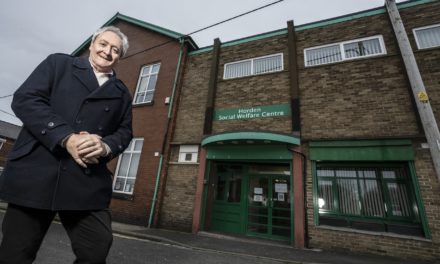The ways in which a council’s budget and spending plans will be impacted by the government’s Comprehensive Spending Review will be discussed next week.
Durham County Council’s Cabinet will receive updates on the authority’s Medium Term Financial Plan (MTFP) for the next four years and consider a range of emerging and escalating budget pressures that need to be accommodated next year, including the ongoing economic impact of the coronavirus pandemic on waste collection and disposal.
The council, and local government as a whole, has been operating under significant financial uncertainty as a result of a series of one-year financial settlements in recent years, significant unfunded budget pressures in social care, special educational needs and disability services, alongside the ongoing impact of the pandemic.
The Comprehensive Spending Review (CSR), which was published at the end of October, is the first step towards a longer-term three-year settlement for councils following the announcement of some additional funding.
Around £1.5 billion per year is expected to be allocated to core local government funding from next year. However, it is not yet clear how that money will be distributed and the allocation formula used will have a major impact on how much funding will be available to individual councils.
The funding is to be used to cover the increase in employers’ national insurance rates, as part of the health and social care levy which is expected to cost Durham County Council around £2 million each year from 2022.
In recent years, the government has also allowed authorities to be more flexible in increasing council tax beyond the two per cent referendum level to fund increasing social care pressures.
Continues…
Durham County Council increased its council tax by an additional two per cent per annum in line with the government’s expectation in 2018/19 and 2020/21.
In 2021/22, it was also able to increase council tax for the adult social care precept by a further three percent across the current and next year. The council chose to use only one percent of this additional flexibility in the current year.
The CSR announced that further additional adult social care precepts of one per cent would be available next year and that an indicative one per cent precept could also be used for financial planning for the following two years.
Initial allocations of funding from the health and social care levy were outlined in the review, which rises nationally from £200 million next year to £2 billion in 2024/25. The funding must be used to cover losses of income from the introduction of a charging cap per person and the increase in the means test asset limit.
The council has expressed concern over the introduction of the national policies which are likely to result in care providers expecting a significant increase in fees payable. However, there is no indication of how much funding will be provided or the loss of income at this stage.
Meanwhile, work has been undertaken by the council to understand the ongoing impact of the pandemic into next year, with increased tonnages of household waste placing pressure on its waste disposal budgets. These are not reducing to pre-pandemic levels, while rising costs of energy and diesel prices are also of concern.
Cllr Richard Bell, Deputy Leader of Durham County Council and Cabinet member for finance, said: “We welcome the announcements made in the Comprehensive Spending Review and the increased funding coming to the sector. However, uncertainty over the way in which the new funding will be distributed, alongside additional budget pressures that need to be addressed, is continuing to make financial planning difficult.
“It is therefore important that we continue to be flexible and adaptable as we look to set our budget for next year and plan for the following four years. This will ensure that we are well placed to react effectively to any outcome and best support our residents in County Durham.
“Decisions on council tax levels will need to be taken in February and we will need to carefully reflect on the local government finance settlement when we receive it.”
It is not possible to accurately forecast what the council’s financial settlement until the draft settlement is published this month. Once this has been received and assessed, an updated MTFP forecast will be presented to Cabinet in January 2022.
Cabinet will meet at 9.30am on Wednesday 15 December. The meeting can be viewed online at www.youtube.com/DurhamCouncil









